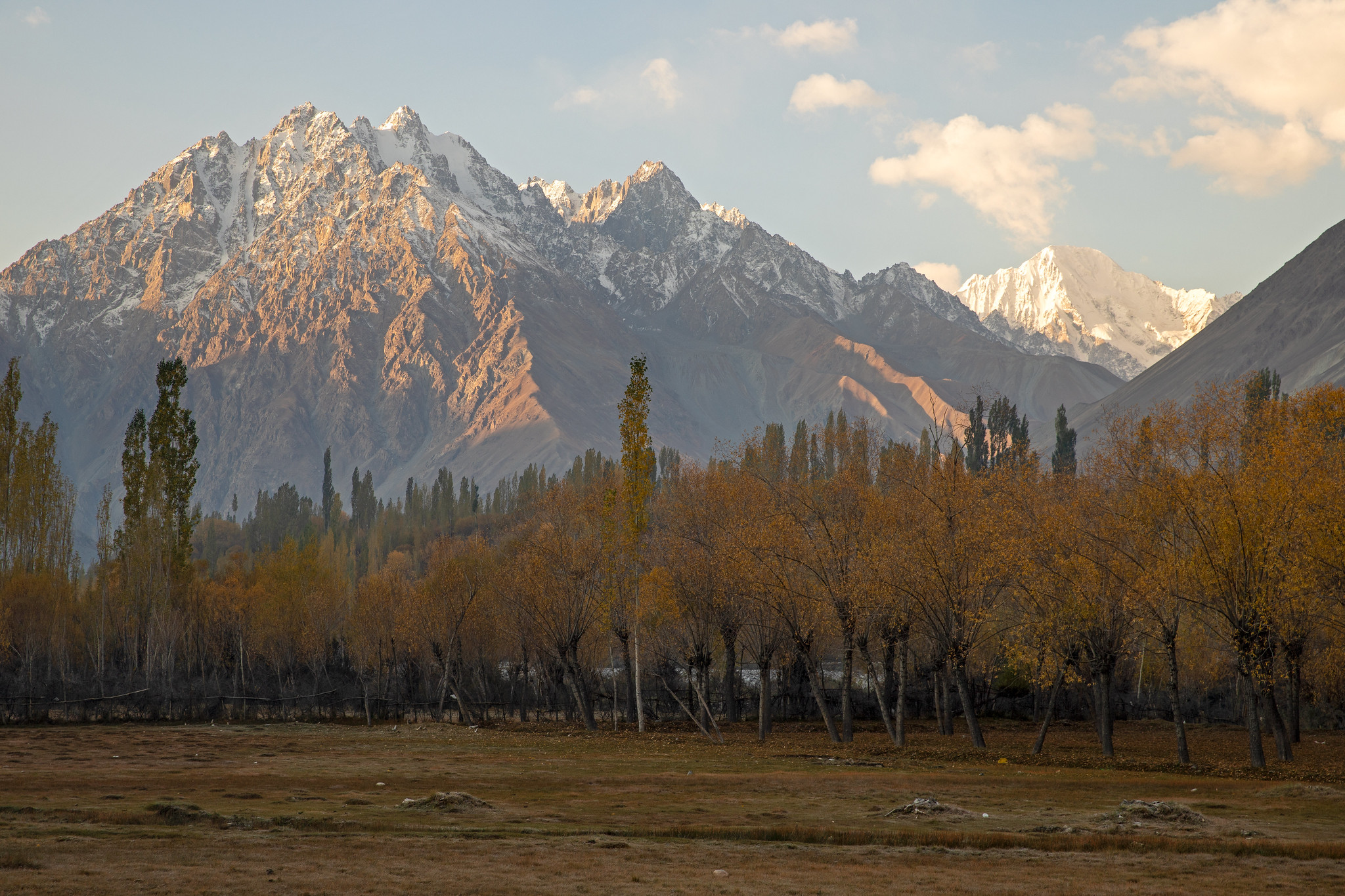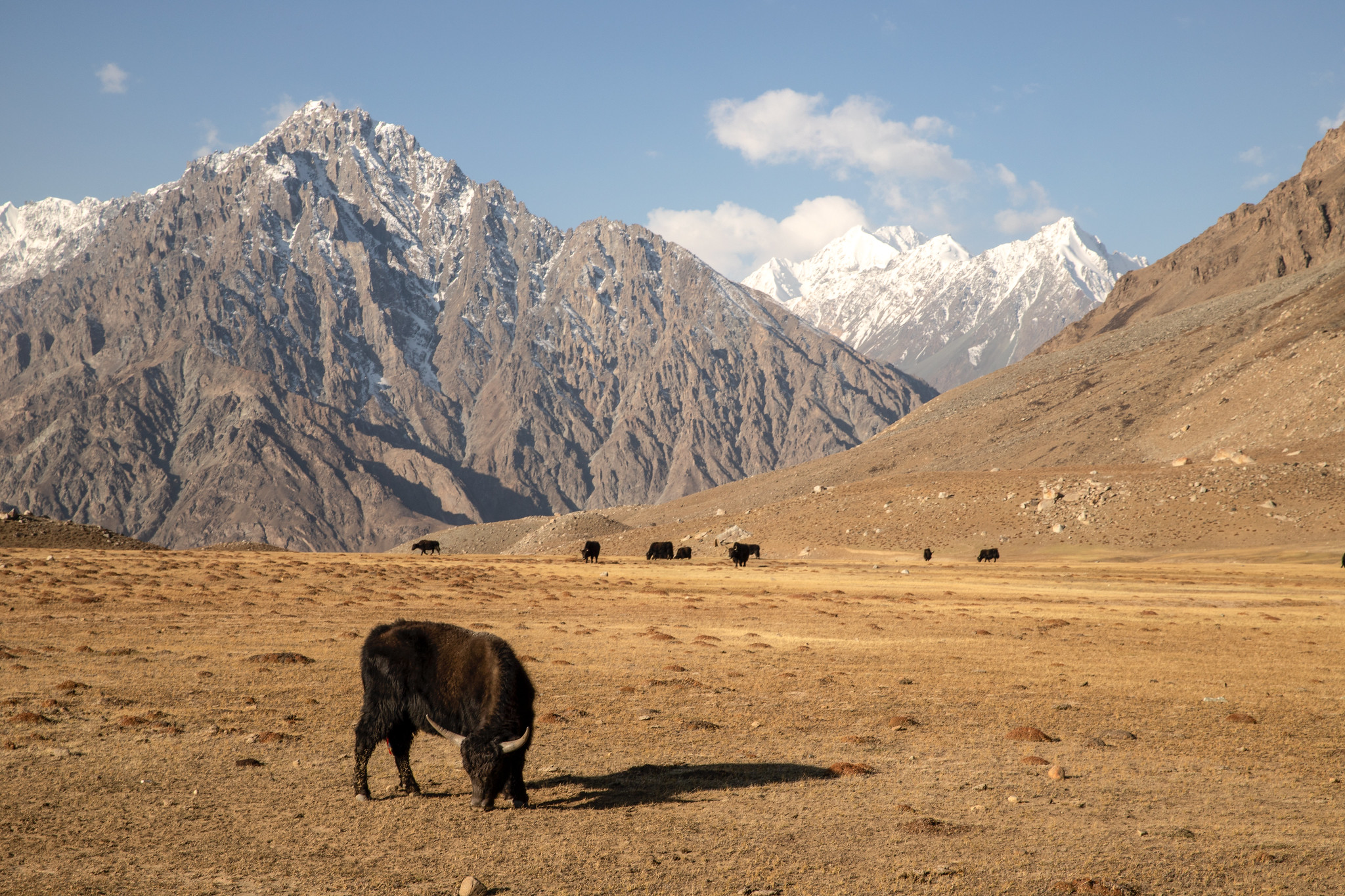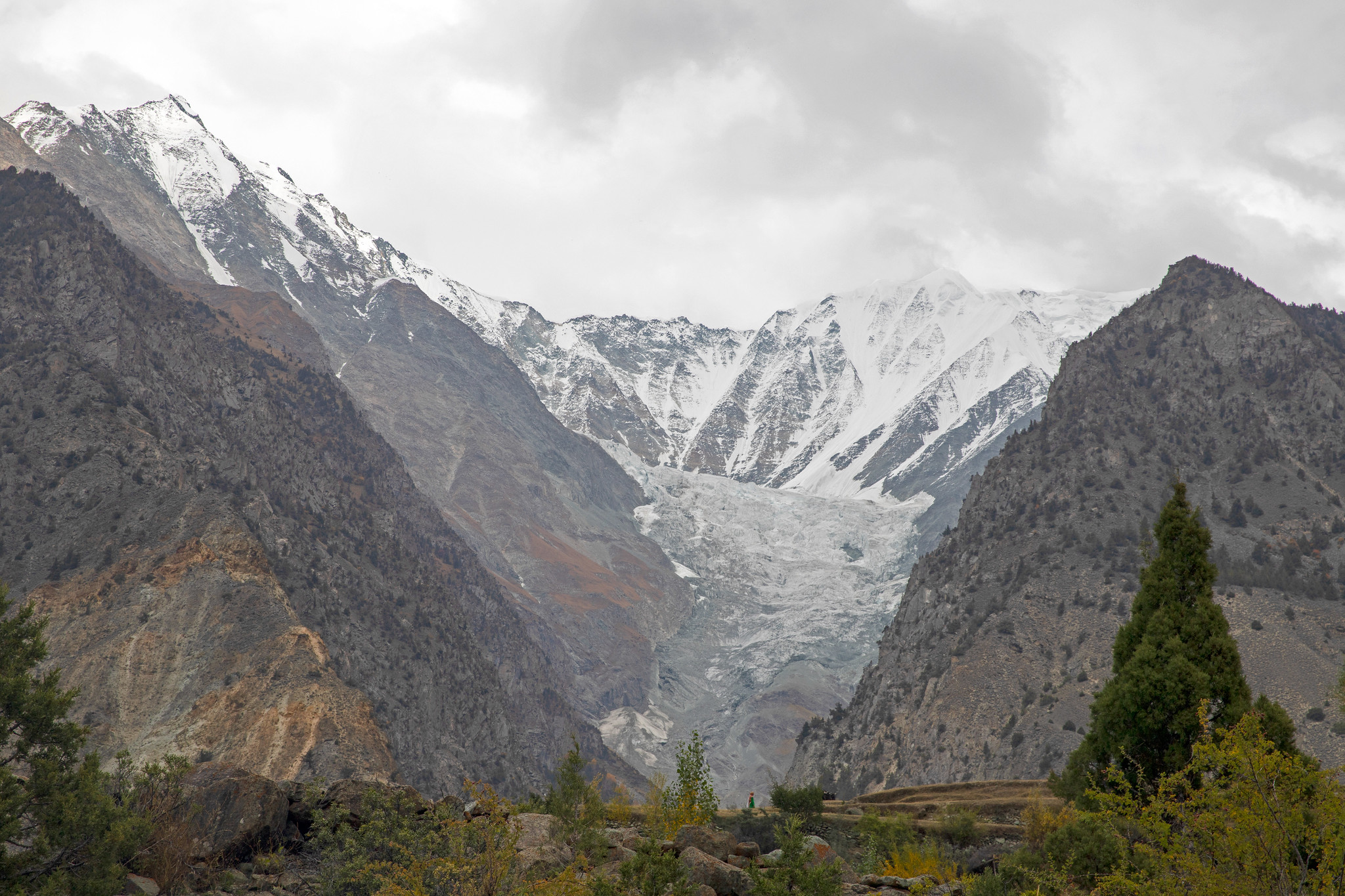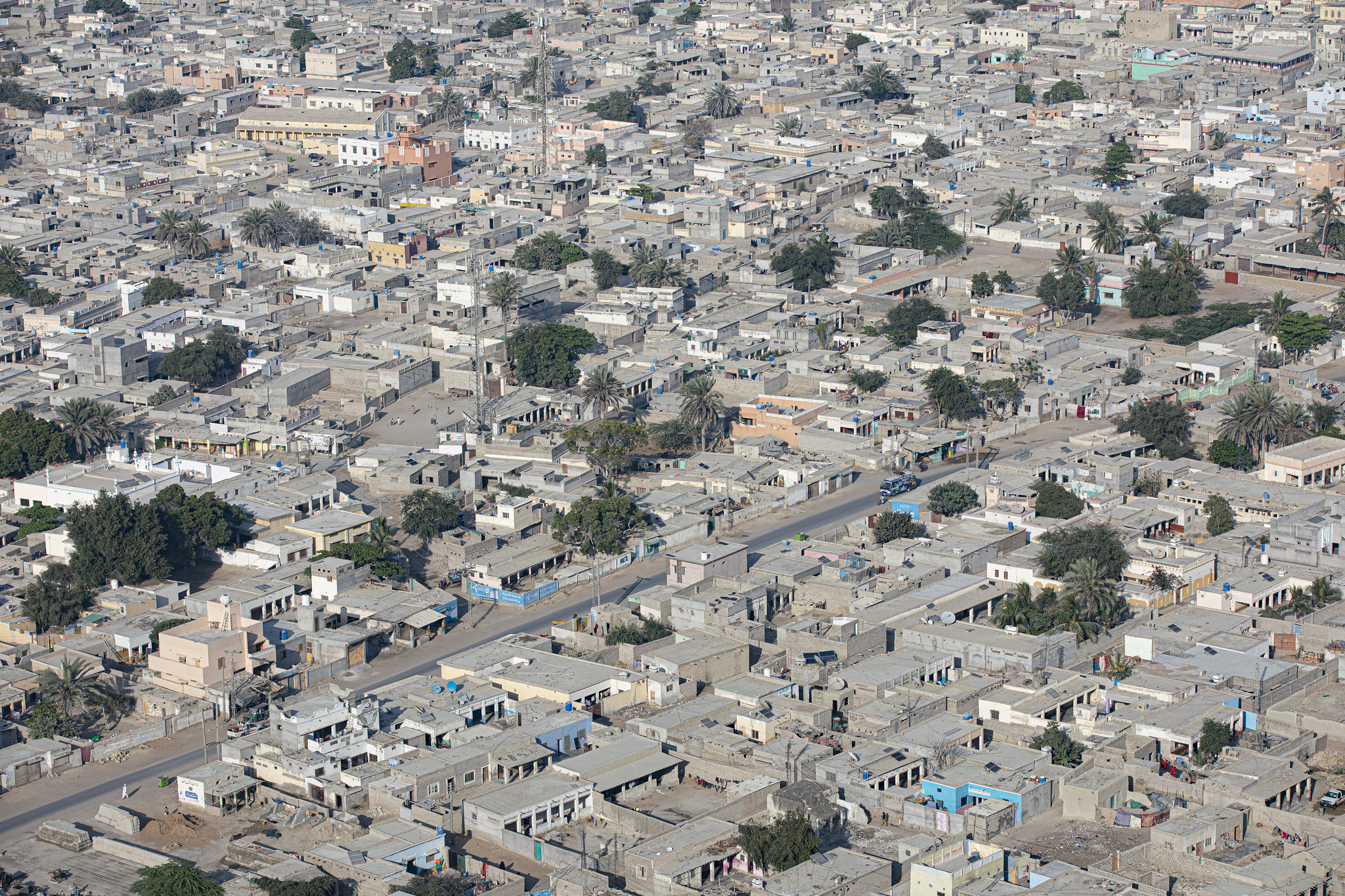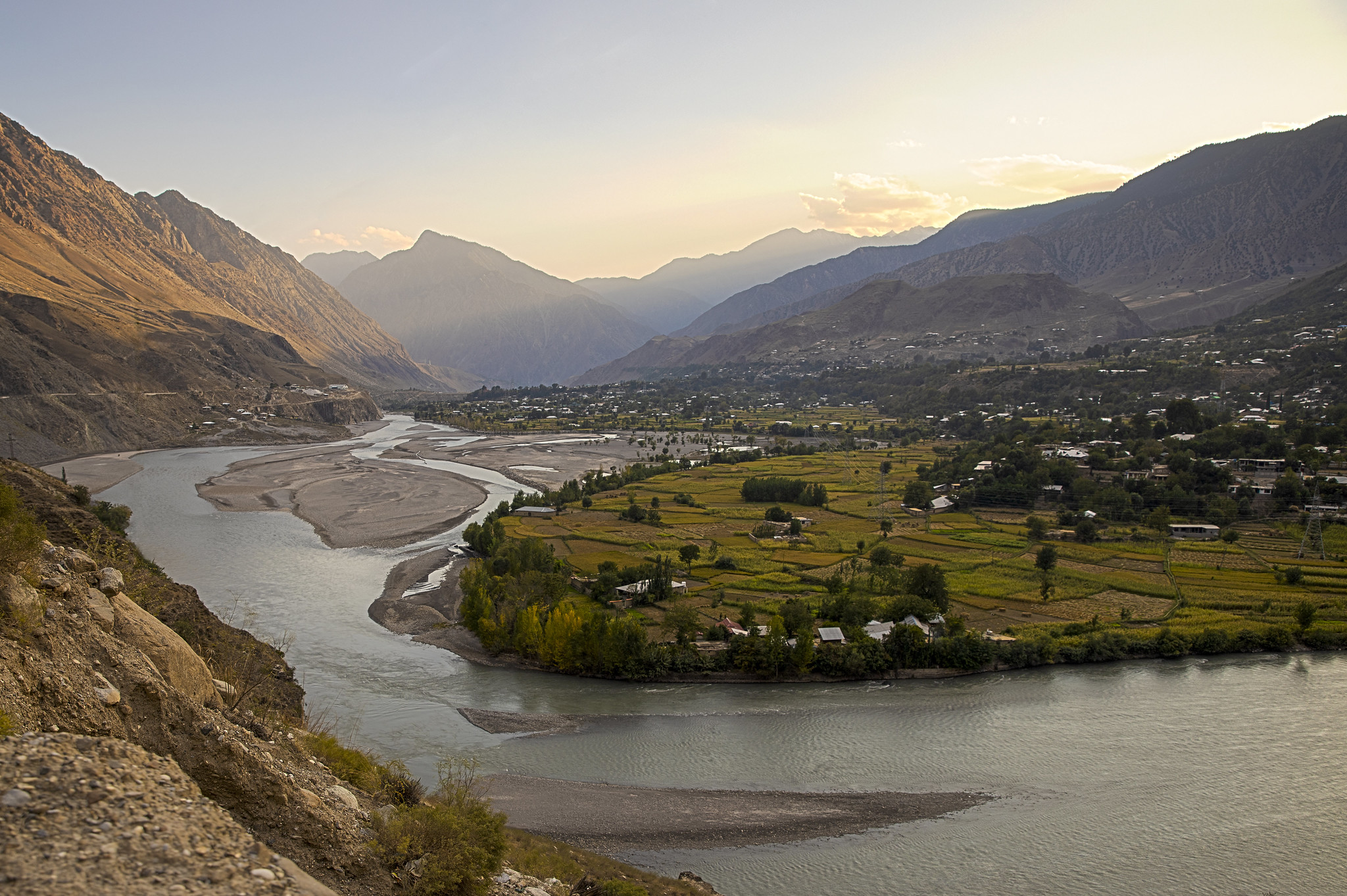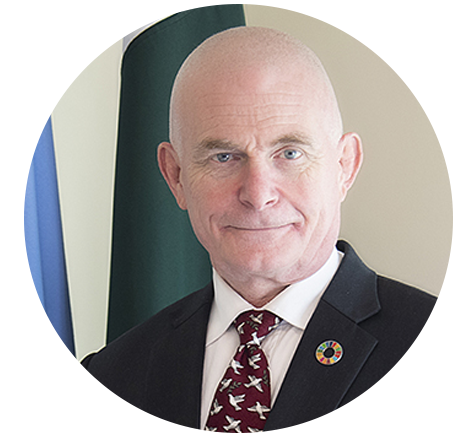Photo: Jamil Akhtar/UNDP Pakistan
Pakistan has reason to celebrate! It has been able to reduce its vulnerability to climate change by three points - from 5th in 2020, to 8th in 2021. Pakistan also earned the privilege of hosting the global World Environment Day this year in conjunction with the UN Decade for Ecosystem Restoration 2021-2030, with high-level participation and endorsements from world leaders. Under its ‘Green Economic Stimulus’, Pakistan has already achieved the target of planting one billion trees as part of its 10 Billion Tree Tsunami Afforestation Project. Meanwhile, its ‘Green Nigehabaan Initiative’ is providing thousands of job opportunities to youth and daily wagers.
Photo: Jamil Akhtar/UNDP Pakistan
These successes, along with the government’s multiple initiatives aimed at safeguarding its environment, protecting biodiversity and creating nature-based jobs, are proof of the country’s commitment to rethinking its political economic paradigm, and tying it strongly with climate responsibility. Pakistan is currently spending almost six percent of its annual federal budget to curb the impacts of climate change, with a record allocation of USD 93 million (PKR 14500 million) for 2021-22.
Although the country is responsible for less than one percent of global carbon emissions, however, with the rampant reverberations of climate change being experienced across the globe, Pakistan remains one of the most vulnerable countries exposed to climate change. An estimated 10,000 lives were lost to climate related disasters in the country between 1998-2018. The economic losses from 152 extreme weather events amounted to USD four billion
during the same period. The mean estimated cost of environmental degradation is about USD 2.34 billion (PKR 365 billion) per year in Pakistan, equivalent to six percent of its GDP.
One of the 13 glaciers of Bagrot valley, Gilgit: Drastic changes in the climate are wreaking devastation on glaciers the world over and Pakistan is no exception. The melting glaciers create lakes that can overflow and cause tremendous devastation to lives and property. UNDP has been very active in the northern parts of the country, including Chitral in Khyber Pakhtunkhwa province and the Gilgit Baltistan province. Its interventions have focused on environment, disaster risk reduction, environmentally friendly tourism, local empowerment, and livelihoods support. Photo: Jamil Akhtar/UNDP Pakistan
In the northern areas of Pakistan, the pace of glacier melting is unprecedented. Soaring temperatures coupled with emission trends, signify a loss of nearly two-thirds in ice fields by 2100. The domino effect of these melting glaciers will be cataclysmic: landslides, dam bursts, heavy flooding and soil erosion. This is the projected state of Pakistan’s climate landscape in 2050.
In 2019-20, Pakistan saw the most devastating locust infestations in nearly 30 years, caused by locust migrations from the Arabian Peninsula, where their excessive breeding occurred owing to unprecedented heavy rains and cyclones. With losses totalling nearly USD 2.5 billion and complete destruction of winter crops, Pakistan had to declare a national emergency to tackle its locust crisis.
While the economic and environmental costs are grave, there are social costs also. There has been a significant rise in climate migration in the country, totalling at nearly 30 million people in the last decade. Displacements, loss of homes and livestock, loss of lives and livelihoods, are anticipated to result in increased fragility in rule of law, health and food security sectors, thus causing an imbalance in the social fabric.
Photo: Shuja Hakim/UNDP Pakistan
There is also a climate change induced urban crises in the making, as Pakistan faces increase in average temperatures significantly above the global average. The country’s largest city, Karachi (Sindh), has been identified as one of the planet’s climate hotspots. Jacobabad (Sindh), where temperatures soar beyond 50 degrees centigrade, may be the hottest city in Asia. By 2030, Pakistan is expected to experience a 75 percent rise in heat waves; it will increase to 189 percent by experience a 75 percent rise in heat waves; it will increase to 189 percent by 2060, and 277 percent by 2090.
These changes will place extreme pressures on urban environments, and the energy and health systems which support them. Consider this: on average, a one degree increase in ambient temperature can result in a 0.5–8.5 percent increase in electricity demand. With power supply severely impacted as demand rises, the impacts of climate change will also exacerbate existing socio-economic inequalities in the country, already highlighted in UNDP Pakistan’s National Human Development Report 2020: The Three Ps of Inequality: Power, People, and Policy.
Photo: Jamil Akhtar/UNDP Pakistan
It is encouraging to see Pakistan’s urgent cognizance of these challenges, as well as its multi-pronged efforts to find solutions for their mitigation. With the help of UNDP and other development partners, Pakistan’s government is now actively exploring nature capital based solutions as innovative ways to meet the country’s climate financing needs for post-COVID-19 socioeconomic recovery and resilience. One of them includes plans of launching a Nature Performance Bond that will allow the country to have accelerated access to climate finance linked to quantifiable nature performance.
We are witnessing a unique moment in world history where there is increasing convergence between the global and local agendas for promoting united action to arrest climate change. As the UNDP Administrator Achim Steiner says in the 2020 global Human Development Report on human development and the Anthropocene: “We are the first people to live in an age defined by human choice, in which the dominant risk to our survival is ourselves”. Dealing decisively with climate change is key to ensuring sustainable development, poverty eradication and for safeguarding economic growth. The world must act as one.
Author:
Knut Ostby
Resident Representative, UNDP Pakistan

 Locations
Locations